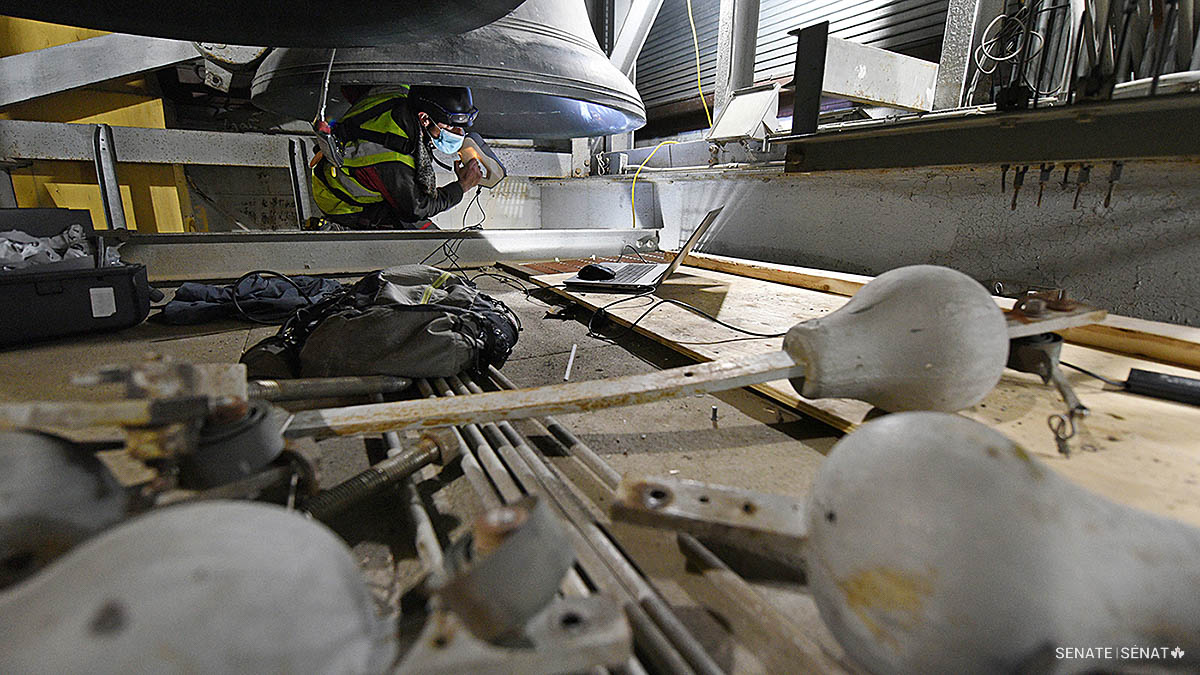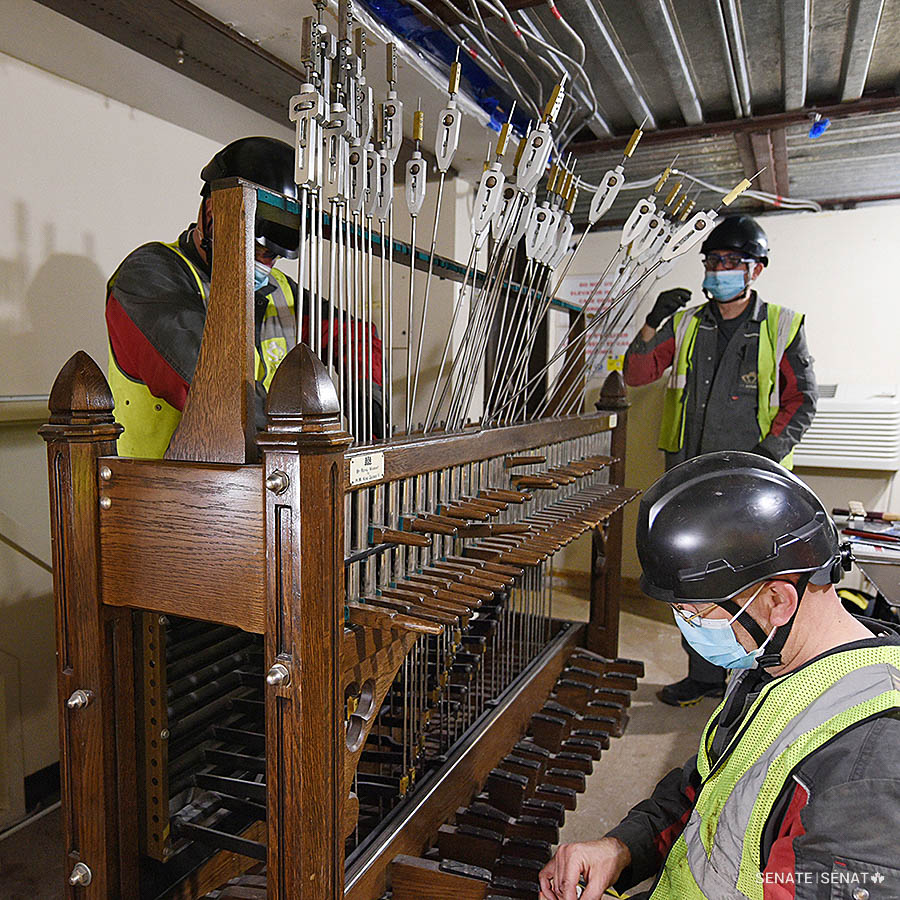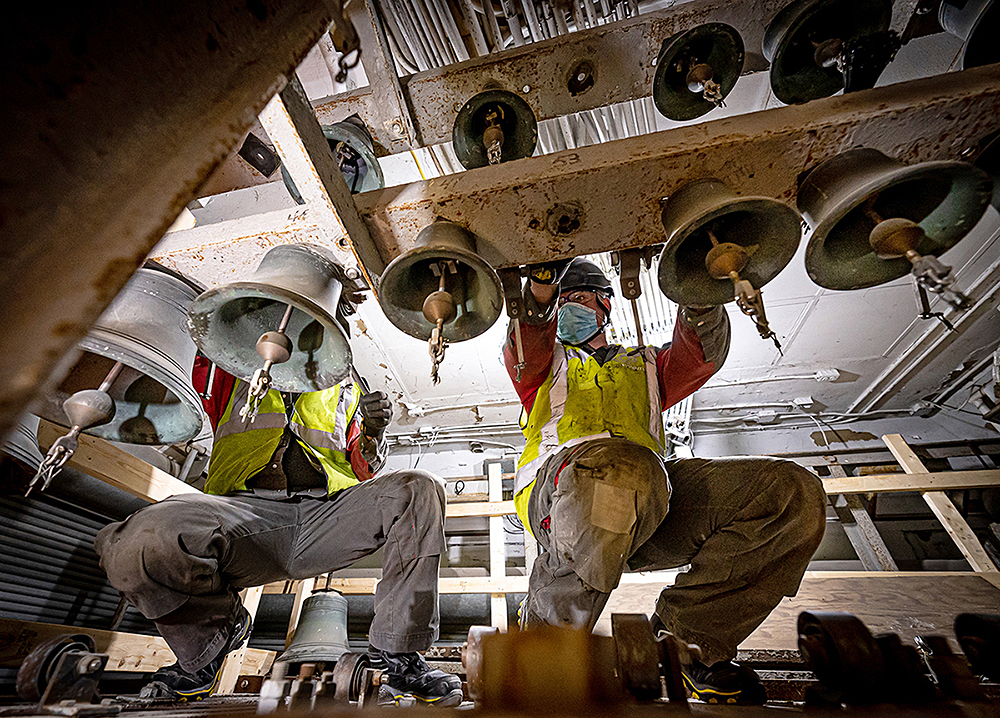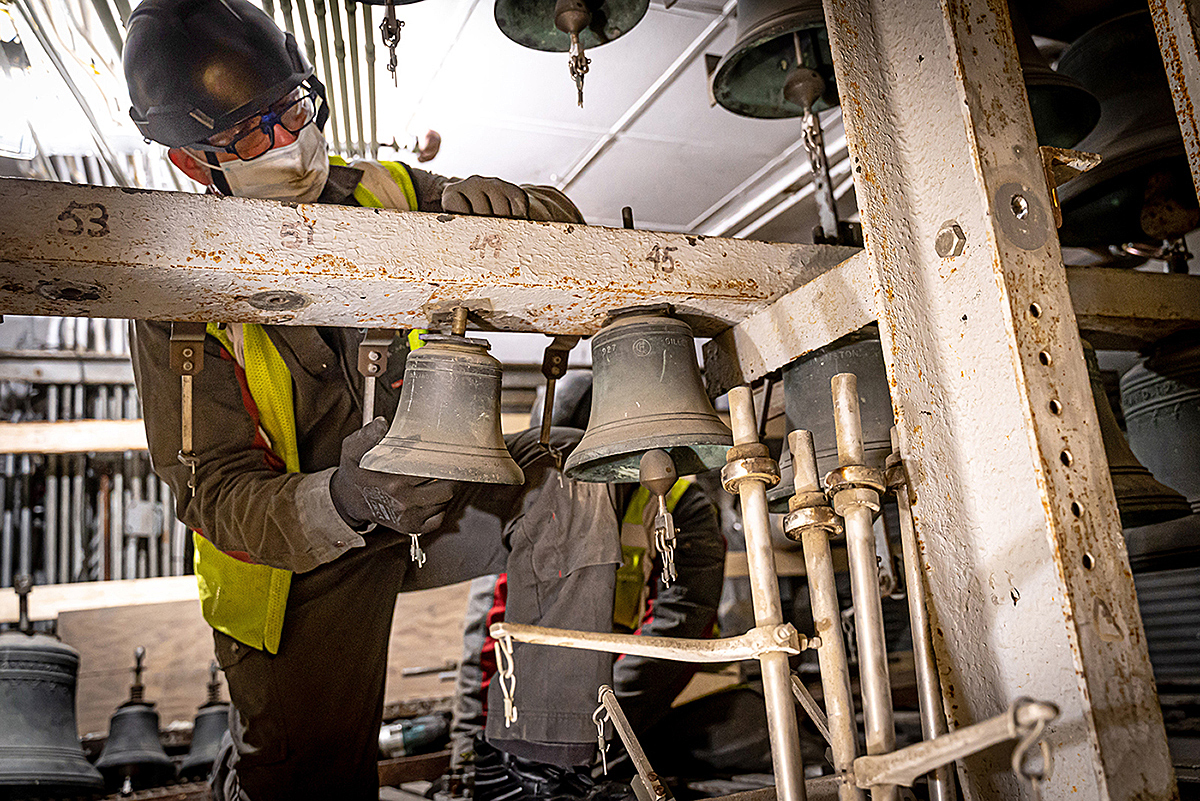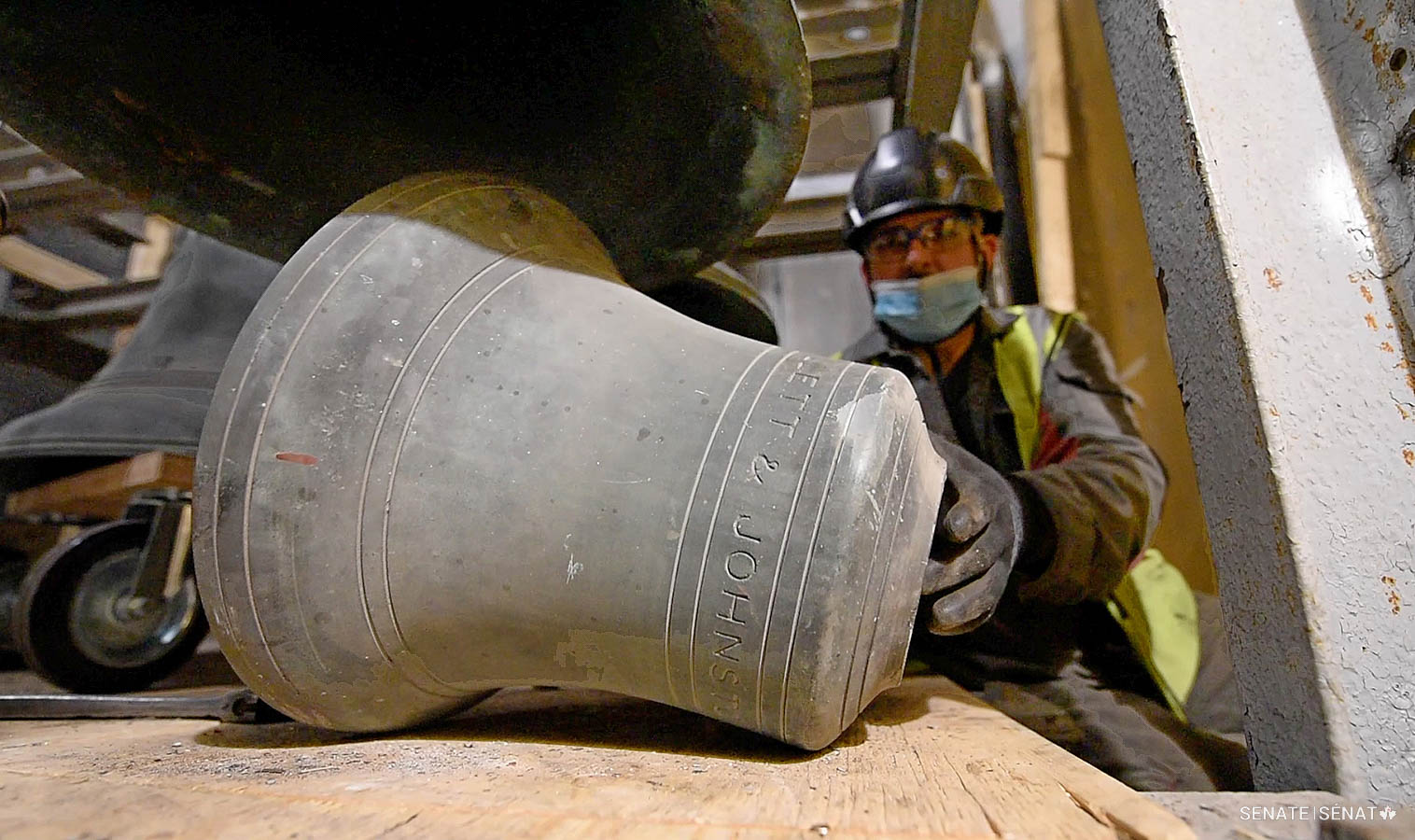Dutch know-how helps put the chime back in Parliament’s bells
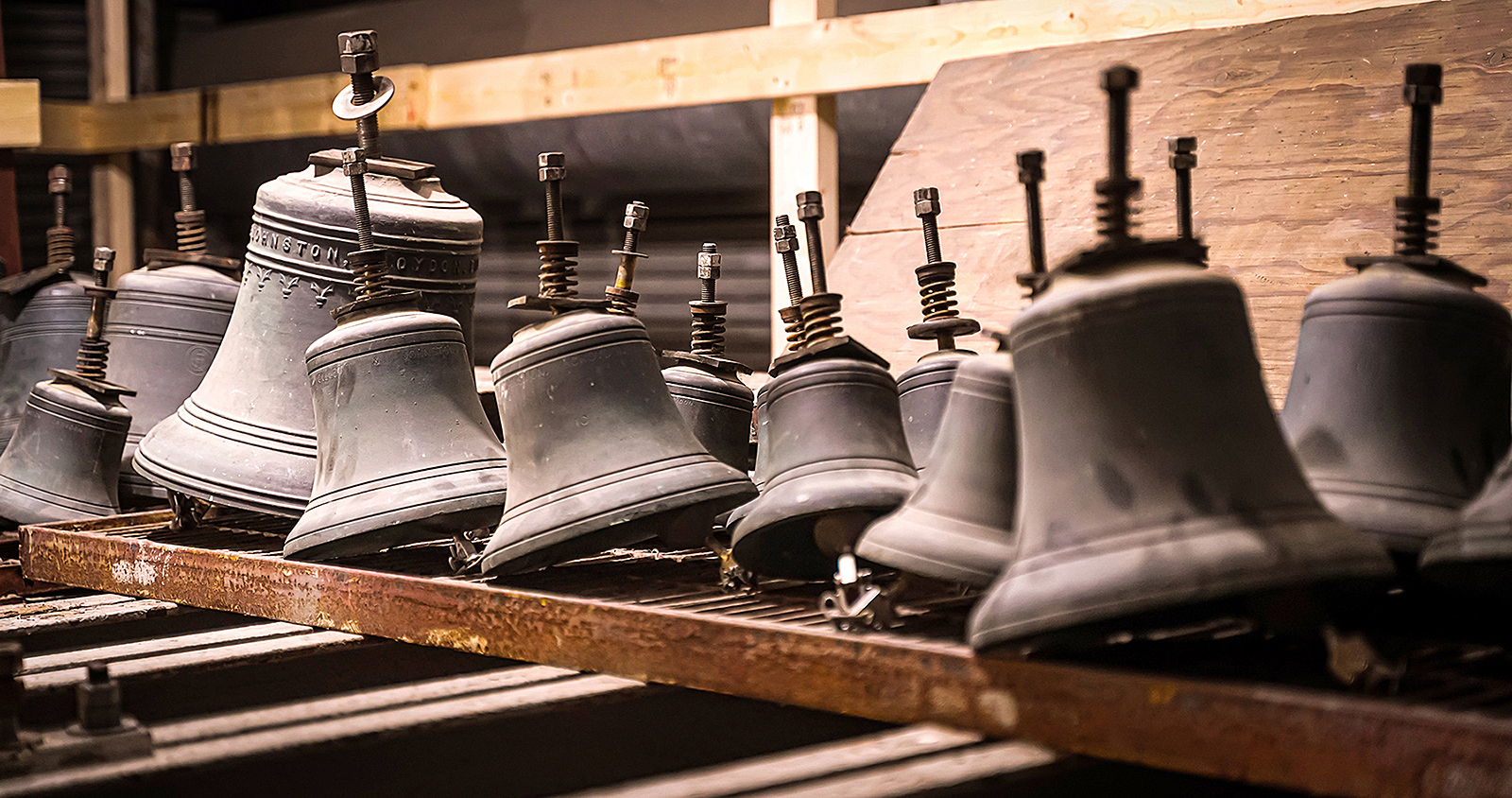
In February 2019, the Senate moved to the Senate of Canada Building, a former train station built in 1912. The Senate will occupy this temporary location while Parliament’s Centre Block — the Senate’s permanent home — is rehabilitated.
Although Centre Block is shuttered for rehabilitation work, Canadians can still experience its art and architecture through the Senate’s immersive virtual tour.
Parliament Hill’s bells have gone temporarily silent.
They’ve left for the Netherlands, where the first carillon was built nearly 400 years ago and where the complex art of assembling and repairing these extraordinary instruments still thrives. When the bells eventually return, cleaned and refurbished, they’ll ring clearer than ever.
As part of the rehabilitation of Centre Block — one of the largest heritage-building upgrades in Canadian history — five conservators from Royal Eijsbouts, one of the world’s largest bell foundries, visited Parliament Hill in the spring to assess its carillon.
They inspected the entire instrument, bolt by bolt, lever by lever — from the 10-tonne bell named the Bourdon to the pedals of the intricate wooden keyboard at the centre of the ensemble.
Dozens of components were disassembled and shipped to the company’s headquarters in Asten, the Netherlands, where they will be restored. The largest bells were left attached to the beam supporting them and will be refurbished in place.
* * *
Housed high in the Peace Tower, the carillon is one of Centre Block’s many tributes to Canada’s sacrifices during the First World War.
It was the brainchild of Senator George H. Bradbury, a Manitoban who commanded the 108th Battalion of the Canadian Expeditionary Force during the First World War. Landing in northern France in 1916 and thrust straight into the Battle of the Somme, Lt.-Col. Bradbury kept his spirits up listening to the peal of church bells drifting across the charred battlefields.
In 1917, soon after he returned from the war, he was appointed to the Senate.
Ottawa was a flurry of activity. The new Centre Block — built over the foundations of the original Parliament Building that burned to the ground in 1916 — was taking shape and construction was beginning on its clock tower. Bradbury made it his mission to see a carillon that would pay tribute to his fellow soldiers installed in what would be christened the “Peace Tower.”
A carillon “would not only be rendering immortal the fame of the men who participated in the war,” he told fellow senators, but “would be making immortal the principles for which they contended and for which they sacrificed their lives.”
The bells Bradbury championed have been a fixture of Parliament Hill ever since their debut on July 1, 1927 — the 60th anniversary of Confederation — when they charmed a crowd of 60,000 on Parliament Hill along with thousands of Canadians tuning in to the nation’s first live coast-to-coast radio broadcast.
* * *
In the interim, the bells have weathered a century of Canadian winters and repeated use. They show a few signs of their age but remain in surprisingly good shape, according to the Royal Eijsbouts conservators who visited in April 2022.
The team packed bells and any parts that needed repairs into secure crates that were then flown overseas on a Department of National Defence cargo plane.
Back in the Netherlands, worn mechanical parts will be replaced with silent, lightweight, stainless-steel and zinc-plated hardware. The bells will be cleaned, repaired, and fine-tuned to ensure they stay perfectly on pitch.
The largest clappers will be cleaned by sandblasting. The 17 smallest bells will be fitted with entirely new cast-iron clappers, installed to eliminate any wobble when they strike.
Revitalizing such a massive and complex instrument involves an enormous amount of work said Jaap Leyten, Royal Eijsbouts’ chief engineer and supervisor for the Parliament Hill project.
“But it’s definitely worth it,” he added, especially when the carillon is considered a national treasure.
“I’m looking forward to coming back in a few years and putting the refurbished bells back in place. When the customer is happy, that’s the greatest part.”



